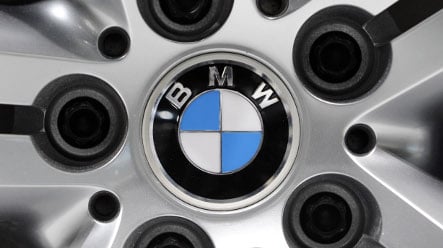BMW made a first-quarter net loss of €152 million ($202 million), a statement said, compared with a profit of €487 million in the same period of 2008.
“I do not expect any improvement in auto markets before 2010,” chief executive Norbert Reithofer said in a telephone news conference later, adding that it was “far too early” to call the coast clear.
The group declined to give an outlook for 2009, citing “the unprecendented magnitude of the economic downturn,” but the statement said auto markets were “bracing themselves” for sales decreases of at least 10 percent.
Core earnings swung to a loss of €55 million from a profit of €827 million, as sales slumped by 13 percent to €11.5 billion, the statement said.
Those results were nonetheless “surprisingly good,” Dow Jones Newswires quoted Bankhaus Metzler analyst Juergen Pieper as saying, and BMW shares leapt by 5.46 percent to €28.99 in midday Frankfurt trading.
The German DAX index of leading shares remained essentially unchanged overall.
BMW’s net loss was less than half the €392 million feared by analysts who had also foreast a core earning loss of €275 million and €10.5 billion in sales.
The company pointed to steep drops in sales on major markets and high financing costs as key factors in the first quarter losses.
In addition to the BMW brand, the group owns MINI and Rolls-Royce.
BMW said it had trimmed costs during the first three months of the year and reduced inventories, in part through the elimination of more than 900 posts, as many departing workers were not replaced.
It also focused on reinforcing its cash position after having taken substantial provisions for losses in leasing operations.
“We were able to generate a positive free cash flow of €220 million” in the first quarter, Reithofer said, and BMW had €10 billion in cash at the end of that period.
But the company said 2009 would nonetheless be a year of “transition,” ahead of several key model launches, including a new 7 Series and a new Z4 model that were expected to generate demand next year.
BMW and its German rival Daimler, which makes Mercedes-Benz, have been hit hard by the global slump in automobile markets, while US leasing operations have also been hammered by financial market turmoil.
In late April, Daimler posted a first quarter net loss of €1.28 billion.
A German government car scrapping premium of €2,500 for turning in old cars for new ones has resulted in strong demand for smaller, cheaper cars, but left luxury brands on the sidelines.
While waiting for markets to rebound, Reithofer was quoted as saying that “in view of the difficult conditions still prevailing on the financial markets, we remain focused in our efforts to improve our liquidity position.”



 Please whitelist us to continue reading.
Please whitelist us to continue reading.
Member comments